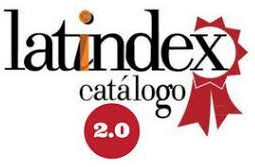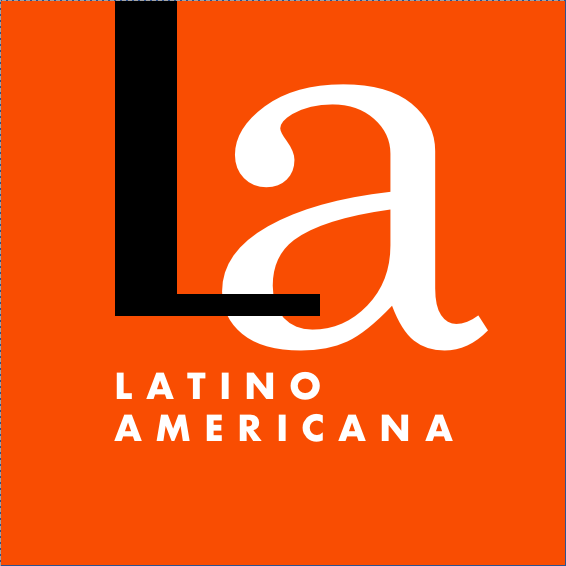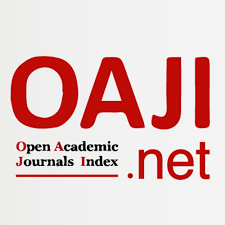Joking over the ruins: the end of the Vietnam War in three Ibero-American satirical magazines (1972-1973)
Abstract
In January 1973 the governments of the United States, North Vietnam and South Vietnam signed the Paris Peace Accords. This was a watershed moment both for international policy and for the USA’s domestic policy. But it also implied a cultural breaking point. In this essay I will focus in three satirical humor magazines which represented and laughed at the American defeat and the end of a war that, up to that point, seemed an immutable element of the international political landscape: Satiricón (Argentina), O Pasquim (Brazil) and Hermano Lobo (Spain). These were the most important satirical magazines in each of the countries at the moment of the signature of the peace accords, and they echoed them in an adequate manner.Downloads
References
Biskind, P. (1998). Easy Riders, Raging Bulls. Bloomsbury Publishing.
Chapman, J. L., Hoyles, A., Kerr, A., & Sherif, A. (2015). Comics and the World Wars: A Cultural Record. Palgrave Macmillan.
Dorfman, A., & Jofré, M. (1974). Superman y sus amigos del alma. Edit. Galerna.
Englehart, S. (2020, May 4). CAPTAIN AMERICA and the Legacy of SECRET EMPIRE, by STEVE ENGLEHART. 13th Dimension. https://13thdimension.com/captain-america-and-the-legacy-of-secret-empire-by-steve-englehart/
Francisco, L. V. (2010). Ziraldo: Análise de sua produção gráfica no O Pasquim e no Jornal do Brasil (1969-1977) [Text, Universidade de São Paulo]. https://doi.org/10.11606/D.8.2010.tde-30042010-193910
Gandolfo, A. (2020). Un intelectual de los márgenes: Las historietas de Oski en el diario Noticias de Montoneros (1974). IBEROAMERICANA. América Latina - España - Portugal, 20(73), 173–201. https://doi.org/10.18441/ibam.20.2020.73.173-201
García Marquez, G. (1979, December 12). Vietnam por dentro (II). El delirante saldo de la guerra. Alternativa, 243.
Gené, M. (2007). Un estereotipo de la violencia. Caricaturas de judíos en la prensa de Buenos Aires (1930-1940). Índice. Revista de Ciencias Sociales, 25, 137–158.
Gilman, C. (2012). Entre la pluma y el fusil debates y dilemas del escritor revolucionario en América Latina. Siglo XXI Editores.
Gombrich, E. H. (1971). Meditations on a hobby horse and other essays on the history of art. Phaidon.
Kucinski, B. (2018). Jornalistas e revolucionários: Nos tempos da imprensa alternativa. EDUSP.
Martin, A. (1994). Receptions of War: Vietnam in American Culture. University of Oklahoma Press.
Molica, F. (2018, May 11). EUA pediram ao Brasil o envio de tropas para o Vietnã. Veja. https://veja.abril.com.br/mundo/eua-pediram-ao-brasil-o-envio-de-tropas-para-o-vietna/
Pires, M. da C. F. (2006). Cultura e política nos quadrinhos de Henfil. História (São Paulo), 25, 94–114. https://doi.org/10.1590/S0101-90742006000200005
Queiroz, A. C. de B. (2011). Enfim, um escritor com estilo: O jornalista, pasquiniano, ipanemense e sem censura Millôr Fernandes. UFRJ.
Queiroz, A. C. de B. (2020). A trajetória d’O Pasquim: Um alternativo que se tornou empresa (1969-1991). Compartilhando Leituras. https://www.academia.edu/44134306/A_trajet%C3%B3ria_d_O_Pasquim_um_alternativo_que_se_tornou_empresa_1969_1991_
Soihet, R. (2005). Zombaria como arma antifeminista: Instrumento conservador entre libertários. Revista Estudos Feministas, 13, 591–612. https://doi.org/10.1590/S0104-026X2005000300008
Steimberg, O. (2001). Sobre algunos temas y problemas del humor gráfico. Signo y Seña.
Várnagy, T. (2021). Filosofía y Humor. In D. F. Mara Burkart (Ed.), Arruinando Chistes (pp. 23–38). Teseo Press. https://www.teseopress.com/arruinandochistes/
Verón, E. (1985). El Análisis del ‘Contrato de Lectura’. Mimeo, 12.
Vilches, G. (2021). La satírica Transición: Revistas de humor político en España, 1975-1982. Marcial Pons.
White House Memorandum, “Meeting with President Emílio Garrastazu Médici of Brazil on Thursday, December 9, 1971, at 10:00 a.m., in the President’s Office, the White House". (1971). National Security Archive, The George Washington University. https://nsarchive.gwu.edu/document/20757-04
Copyright (c) 2022 Amadeo Gandolfo

This work is licensed under a Creative Commons Attribution-NonCommercial 4.0 International License.

Historia & Guerra uses an international license Attribution-NonCommercial 4.0 International (CC BY-NC 4.0).
You are free to:
- Share — copy and redistribute the material in any medium or format.
- Adapt — remix, transform, and build upon the material.
- The licensor cannot revoke these freedoms as long as you follow the license terms..
Under the following terms:
Attribution — You must give appropriate credit, provide a link to the license, and indicate if changes were made. You may do so in any reasonable manner, but not in any way that suggests the licensor endorses you or your use.
NonCommercial — You may not use the material for commercial purposes.
No additional restrictions — You may not apply legal terms or technological measures that legally restrict others from doing anything the license permits.
Notices:
You do not have to comply with the license for elements of the material in the public domain or where your use is permitted by an applicable exception or limitation.
No warranties are given. The license may not give you all of the permissions necessary for your intended use. For example, other rights such as publicity, privacy, or moral rights may limit how you use the material.
The author retains all rights to his work without restriction and grants Historia & Guerra the right to be the first publication of the work. Likewise, the author may establish additional agreements for the non-exclusive distribution of the version of the work published in the Journal (for example, placing it in an institutional repository or publishing it in a book), with the acknowledgment of having been first published in this journal. Use of the work for commercial purposes is not permitted.
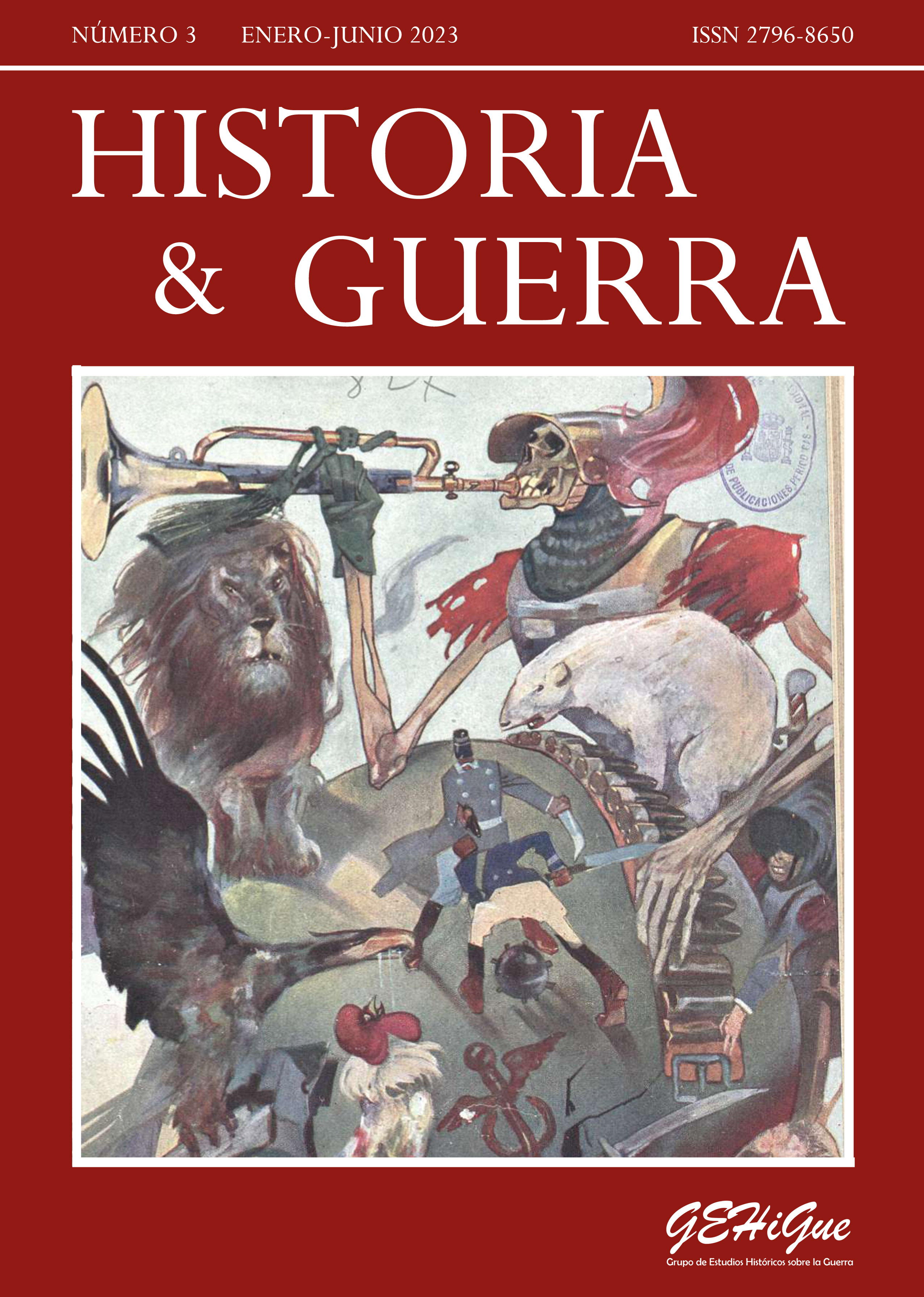

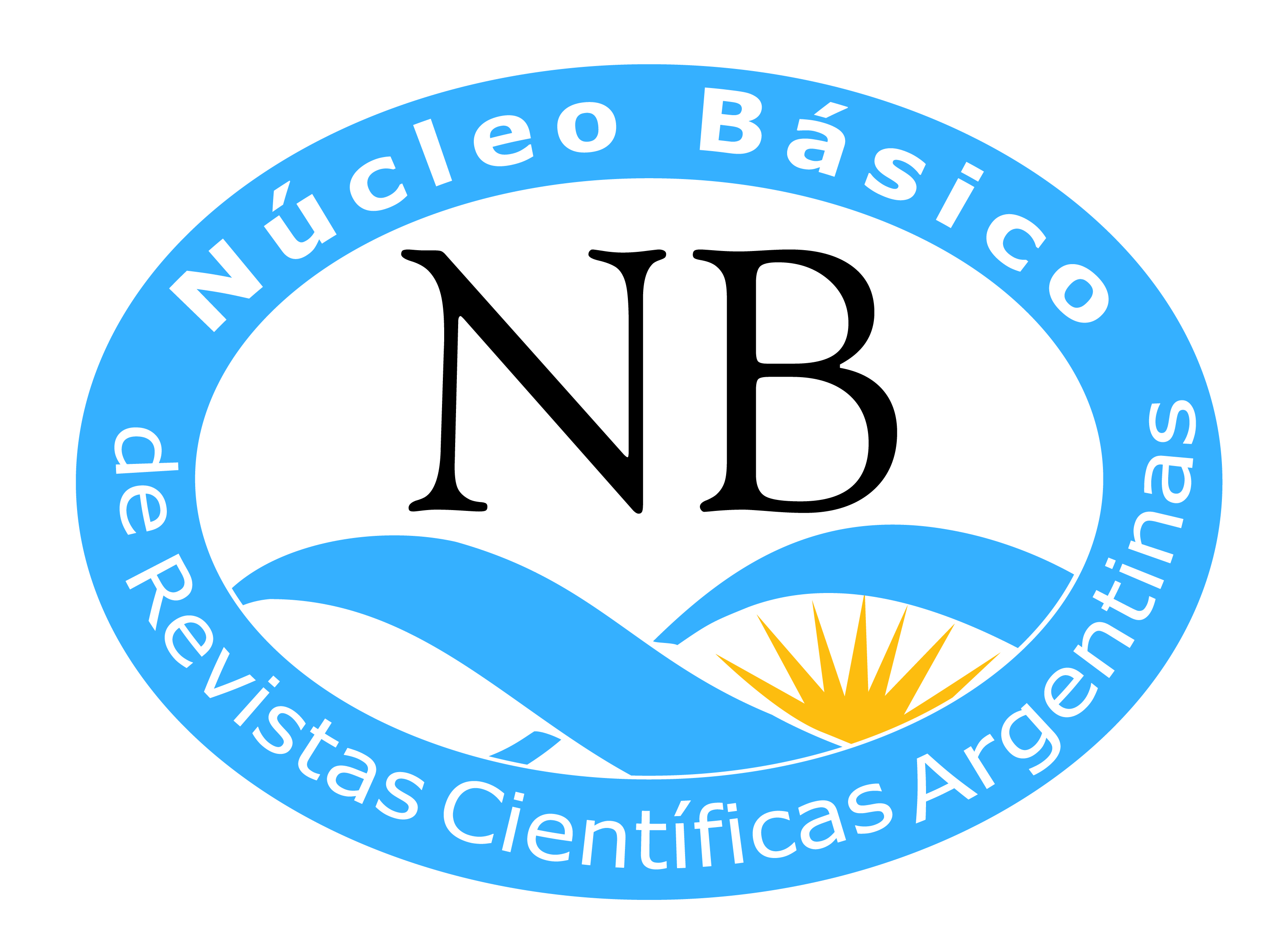




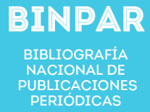






.jpg)


